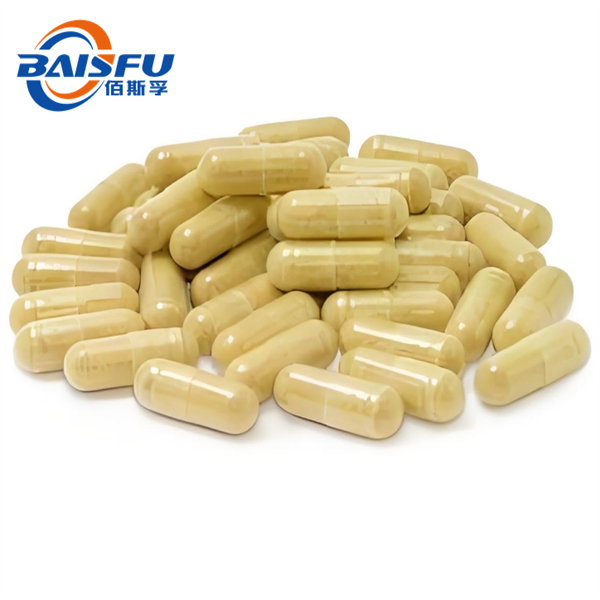Scientific Understanding of Health Food
According to the official website of the National Medical Products Administration (NMPA) of China, the definition of health food is as follows: Health food refers to food that has specific health functions or is intended for supplementing vitamins and minerals. It is suitable for consumption by specific populations, has the effect of regulating bodily functions, is not intended for treating diseases, and does not cause any acute, subacute, or chronic harm to the human body.
Health food is a special category of food, occupying a position between ordinary foods and pharmaceuticals. The main differences are as follows:
Health food emphasizes having specific health functions, while ordinary foods focus on providing nutritional components.
Health food has a specified consumption amount, whereas ordinary foods generally have no such requirement.
Depending on their different health functions, health food has specific suitable and unsuitable populations, while ordinary foods usually do not make such distinctions.
Different purposes of use:
Health food is used to regulate bodily functions, enhance the body's ability to resist diseases, improve sub-health conditions, and reduce the risk of diseases. It is not intended for preventing or treating diseases.
Pharmaceuticals refer to substances used for preventing, treating, or diagnosing human diseases, which purposefully regulate human physiological functions and have specified indications, functional indications, usage, and dosage.
Safety profile:Health food, when consumed in accordance with the specified amount, will not cause any acute, subacute, or chronic harm to the human body. Pharmaceuticals, however, may have toxic and side effects.
Different methods of use:Health food is for oral administration only, while pharmaceuticals can be administered via injection, topical application, etc.
Different types of raw materials allowed:Toxic and harmful substances shall not be used as raw materials for health food.
At present, health food in China is only allowed to claim 27 specific health functions. For each registered and approved health food, the specific expressible claims are clearly specified in the approval documents. However, during actual production and operation, some enterprises have problems such as exceeding the approved content and making false and exaggerated claims about product efficacy. For example:
A product approved for "assisting in lowering blood glucose" is advertised as "replacing blood glucose-lowering drugs";
A product for "enhancing immunity" is claimed to have "anti-cancer and cancer-fighting functions".
In addition, it is common for ordinary foods on the market to claim health functions. For instance:
Various alcoholic beverages are labeled as "health-preserving wine" and claimed to have "health-nourishing and aphrodisiac effects";
Biscuits are advertised as "nourishing the stomach";
Beverages are labeled as "refreshing the mind and invigorating the brain";
Some products even claim to "treat hypertension", "protect knee joints", "replenish kidney qi and enhance virility", or "improve menopausal syndrome" — none of these fall within the scope of the 27 state-approved health functions.
The 27 approved health functions are listed below:
Enhancing immunity
Assisting in lowering blood lipids
Assisting in lowering blood glucose
Antioxidation
Assisting in improving memory
Alleviating eye strain
Promoting lead excretion
Relieving sore throat
Assisting in lowering blood pressure
Improving sleep quality
Promoting lactation
Alleviating physical fatigue
Improving tolerance to hypoxia
Providing auxiliary protection against radiation hazards
Weight loss
Improving growth and development
Increasing bone mineral density
Improving nutritional anemia
Providing auxiliary protection against chemical liver damage
Reducing acne
Lightening chloasma
Improving skin moisture
Regulating skin oil secretion
Regulating intestinal flora
Promoting digestion
Relieving constipation
Providing auxiliary protection against gastric mucosal damage
Health food with approval codes starting with "Weishi Jianzi", "Weishi Jianjinzi", or "Weishi Jinjianzi" was approved by the Ministry of Health before 2003. Relevant information can be queried on the official website of the Ministry of Health.
Health food with the approval code "Guoshi Jianzi" can be verified through the Health Food Database on the official website of the National Medical Products Administration (NMPA, www.nmpa.gov.cn) (navigate to: Data Query → Health Food → Domestic/Imported).
Products with approval codes inconsistent with the above or not found on the official websites of the Ministry of Health or NMPA are not approved health food.
The specific labeling rules for approval codes are as follows:
Health food approved by the Ministry of Health:
Domestic health food: Approval code format is "Weishi Jianzi + (year code) + serial number", with the label "Approved by the Ministry of Health of the People's Republic of China".
Imported health food: Approval code format is "Weishi Jianjinzi + (year code) + serial number" or "Weishi Jinjianzi + (year code) + serial number", also labeled with "Approved by the Ministry of Health of the People's Republic of China".
Health food approved by NMPA:
Domestic health food: Approval code format is "Guoshi Jianzi G + 4-digit year code + 4-digit serial number" (the letter "G" stands for "domestic").
Imported health food: Approval code format is "Guoshi Jianzi J + 4-digit year code + 4-digit serial number" (the letter "J" stands for "imported").Both are labeled with "Approved by the National Medical Products Administration of the People's Republic of China".
Post time:2025-09-23






